The Fearless Five

Posted on
2015 marked 30 years since the appointment of Helen Williams AO as the Secretary of the Department of Education, the first woman to be appointed at this level in a Federal Government department.
1985 was a different time for women, before Parliament House was on the hill and where, as a woman, you were still expected to be pushing prams and typewriter keys rather than formulating policy ideas.
There was just one woman was in the Ministry, the Honourable Susan Ryan AO, and while women may have had a job in the lower ranks of the public service, men occupied most senior roles—from management to secretary to minister. Today nearly 80,000 women hold ongoing employment in the public sector and a growing number are in the upper ranks of the service with five of the 19 Secretary positions now held by women.
There is a common thread that emerges in the stories of these five women leading the Australian Public Service (APS); that for a career to flourish you must find a purpose in the work that is bigger than any individual ambition.
Developing such a purpose is the culmination of years of personal and professional experience, and whether they know it or not, their belief in something bigger than themselves is what makes each women a compelling leader in their own right: to have a life outside work; to invest in people and support them; to seek challenge; to commit to lifelong learning; to be the change we want to see in the service.
Along with their smarts, optimism and commitment to ongoing learning, their collective sense of purpose has enabled these remarkable women to navigate the changing landscape of public service over more than 20 years.
The diversity we have today within the ranks of the service owes its genesis in many ways to these women, who kept leaning in, who never gave up, and who brought people with them through challenging work and political pressure.
“Each day is a privilege,” says Jane Halton AO PSM, Secretary of the Department of Finance and currently leading the public sector reform agenda. It’s the latest chapter in a career that has embraced different experiences working in the Prime Minister’s Department, being instrumental in aged care reform and leading the charge on drug policy.
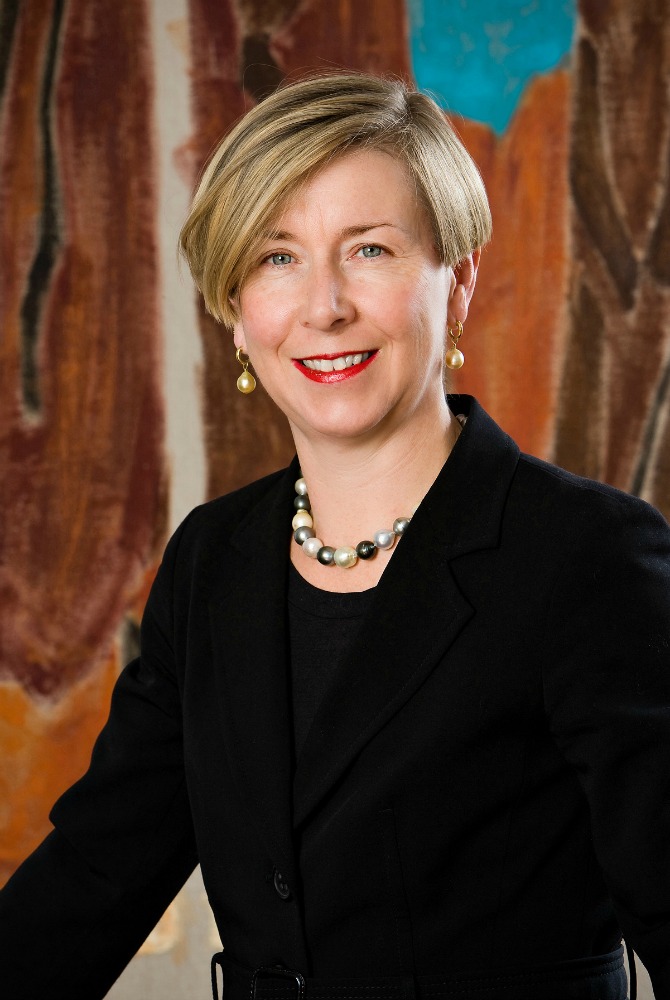
Jane Halton
“We need to be the change we want to see, and be the shoulders for those coming behind us to stand on.”
It is a responsibility profoundly understood by Renée Leon PSM, (Employment), Glenys Beauchamp PSM, (Industry), Kathryn Campbell CSC, (Human Services) and outgoing Secretary of Education and Training, Lisa Paul AO PSM – because they have all steered a career path to the top that just 20 years ago would seem impossible to aspire to. Indeed, it was not one they even dreamed of.
“I joined the APS by accident,” says Lisa Paul, who occupied one of the top APS spots from 2004 until early 2016, leading major reforms in many domains including early childhood, schooling, vocational education, skills and training, higher education, research, science, employment and workplace relations; and earning a Public Service Medal in 2003 for leading the federal government’s domestic response to the Bali bombings.
“I went to uni at the ANU and went along with friends to the APS entry exam. There were hundreds of people lined up at desks at the Campbell High School and the person next to me fell asleep, so I thought I might be in with a chance!”
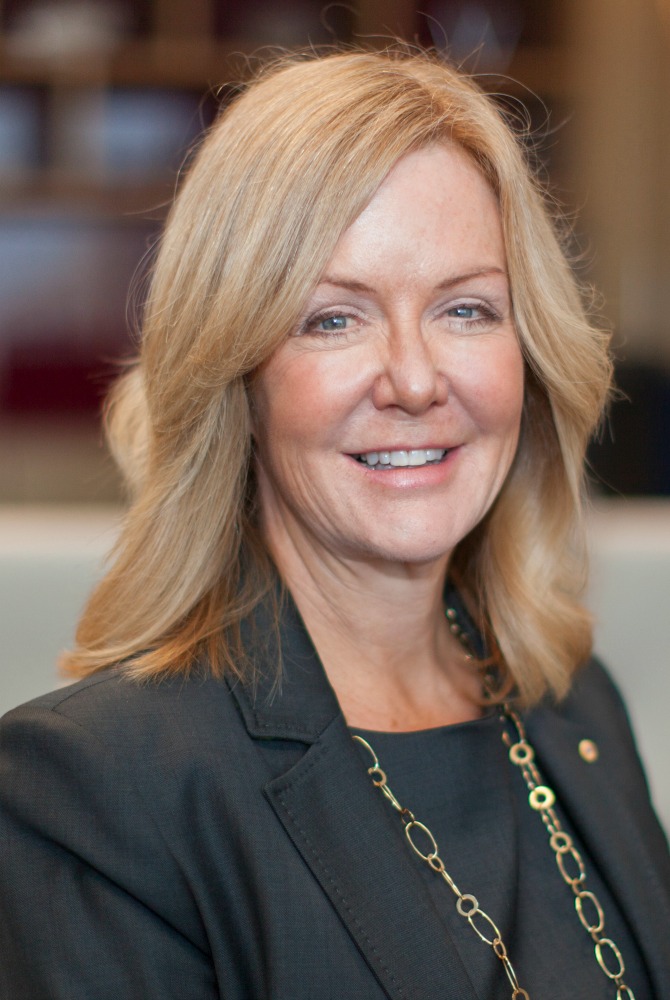
Lisa Paul
Kathryn Campbell tells a similar story. Growing up in Toowomba in Queensland, she was on the path to becoming a school teacher when a recruiter asked her to try the service for a year. The rest, as they say, is history…she’s now leading one of the most significant agendas in public service history, shaping the transformation of service delivery at the Department of Human Services.
“Today young graduates ask me ‘how long will it take me to be secretary?’” Campbell reflects.
“But I never planned to be in a certain spot. I think a lot of women might have decided to go down different career paths because they didn’t see the advancement; now they see there are five female secretaries and they think ‘I could be a secretary’. It is just normal for them. “
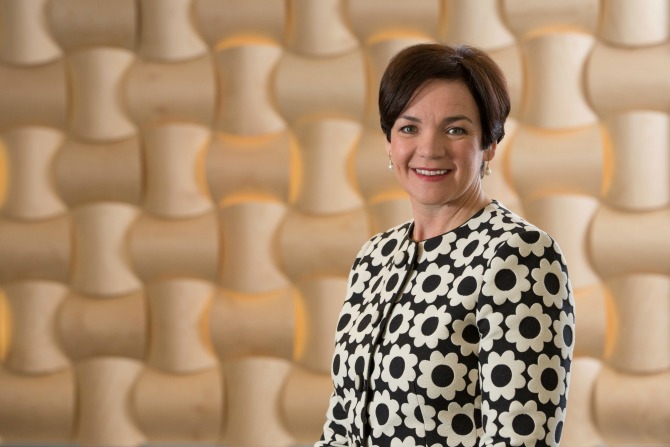
Kathryn Campbell
For Renée Leon, the pathway to Secretary has been enormously satisfying knowing she is making a contribution to the life of the nation. Her track record includes establishing the Royal Commission into Child Sexual Abuse, the intensity of working with other nations to prevent terrorist attacks after 9/11, and serving on the National Australia Day Council selecting Australians of the Year.
“My approach to leadership hasn’t emerged from a single achievement or challenging situation. I think it is fundamental to recognise that nothing is achieved in the APS without the dedication and effort of its people, and therefore it is people we should care about and invest in, and should inspire to motivate to deliver their best.”
Yet when Leon joined the Attorney-General’s Department more than 20 years ago, she noticed there were far fewer women in leadership roles, and that this leadership gap was just starting to be acknowledged as a talent problem.
“In the mid-nineties the Women’s Network looked at the structures and practices that were keeping women from leadership positions – such as meetings before or after normal hours, difficulties accessing part-time work in senior roles and a lack of awareness in senior executive forms of issues affecting women.”
The result was important reforms that would help Leon manage her caring role as well as her career when Leon was in contention for a Senior Executive Service (SES) position.
“I was then the first person to work part-time as a Branch Head in Attorney-General’s and that experience helped the Department improve its practices. Today more women now make up a critical mass of the SES in most Departments.”
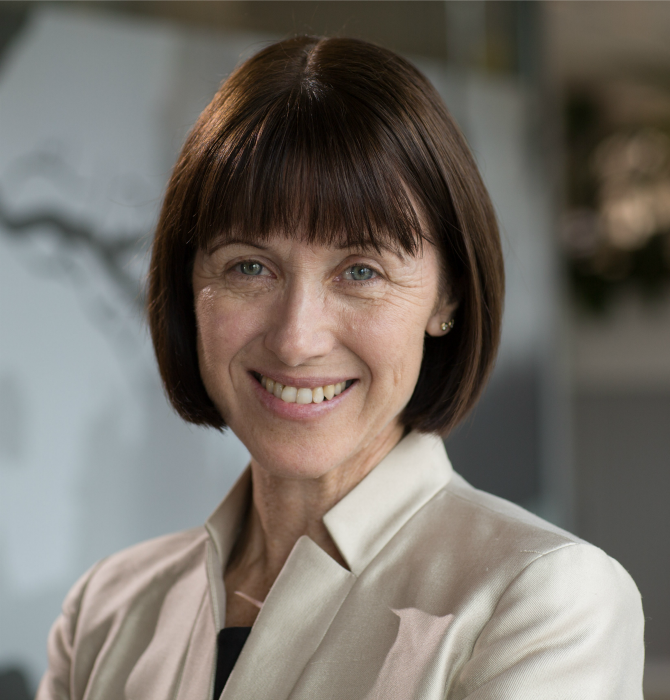
Renée Leon
The shift to more flexible work practices is just one of the many dramatic changes that have reshaped the workforce and workplaces of the APS.
While the nature of the ‘craft’ – as Halton describes it – is still very focused on providing frank and fearless advice, developing relevant policy and being of service to the Australian people; more and more women and people from different backgrounds are contributing to that.
“The public service has a great history and a great future. In the next five to 10 years we will see even greater diversity, which makes for better decisions and a more modern agile workforce,” she says.
It is a world away from the antiquated service of 30 years ago, where Lisa Paul describes people smoking at their desks and where the women’s typing pool transcribed the comments for every brief, memo and letter. Or even the strict hierarchical reporting lines and slow pace of the service Glenys Beauchamp encountered at the start of her career.
“Now with the pace of change, growing citizen expectations of government and being part of a global economy along with the 24/7 media and social media impact, we see significant changes in the APS,” says Beauchamp.
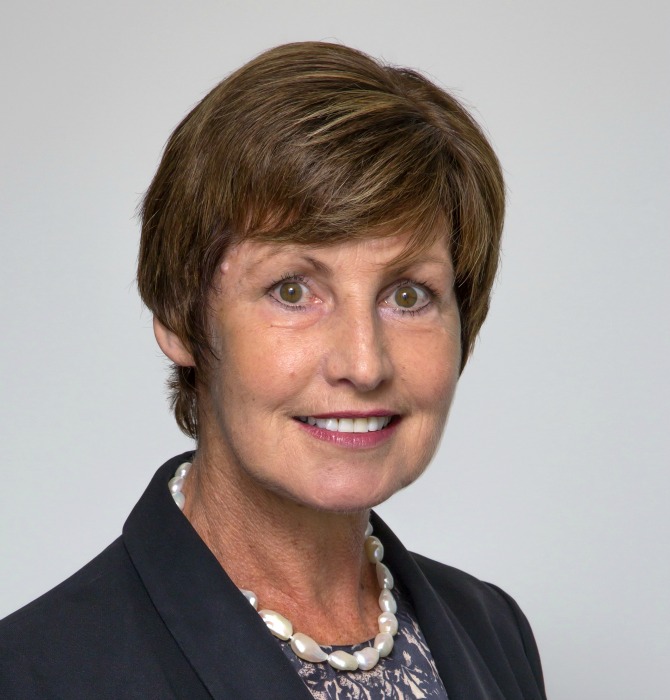
Glenys Beauchamp
For women, technological advances have supported greater career opportunities, along with improvements to recruitment practices which encourage diversity, such as: open selection processes, more flexible work arrangements, and encouragement to gain a range of skills and experiences not just hold a ‘job for life.’
Gone are ‘marriage ban’ days, when a woman was required to relinquish her job in the service when she wed.
“I was trying to explain the marriage ban to my daughters the other day and it was beyond my 17-year-old’s comprehension,” says Campbell.
Yet each Secretary concedes that the right conditions and sheer determination are just part of the story of their success in the service…their support networks have been integral.
Beauchamp says her support network has been a critical touchstone throughout her career, as she tackled National Competition Policy reform, progressing access to childcare, supporting the community of Wadeye following the Inquiry into Protection of Aboriginal Children from Sexual Abuse and leading the Commonwealth’s contribution to the response and recovery for the Black Saturday Bushfires in 2009 where 173 people died and over 400 people were injured.
“At the end of the day it is great to reflect on what you have achieved (or indeed what you haven’t) with family. Family grounds you.”
It’s a sentiment echoed by Campbell. “A lot of women say to me ‘I think I’ll put off having children’, and I say ‘think about your whole life not just your work life – think about what is going to make you happy.’
“My family is the most rewarding thing in my life. I can go home from here and think that I’m the secretary and go home and know that I’m a failure because there is no chocolate in the fridge. They’re that reality, that bounce point, and they’re what’s there at the end of the day.”
All five Secretaries spoke at the ‘Celebrating Women in Leadership’ event hosted last year by the Institute of Public Administration Australia (IPAA). That the event sold out was indicative of a healthy thirst amongst women to understand the secret to success in the service.
Leon believes that to get the best out of people we need to find ways to make it possible to find balance and that self-care is even more important when tackling the fray of both work and life.
“Keep healthy and de-stress by having regular physical exercise, getting good sleep, taking your annual leave and keeping evenings and weekends free of work most of the time,” she says.
Lisa Paul, who has recently begun the next chapter of her career in the private sector, believes that as women we need to be prepared to step up and grasp leadership positions.
“Never stop learning, take every opportunity. We need to put ourselves forward and put in the hard yards to make it happen.”
To Beauchamp the ‘hard yards’ require women to have confidence in their skills and a focus on what they can do rather than what they can’t.
“Lead by example and value the strengths of workmates and colleagues,” she says.
All agree that a key part of building a pathway in the public service is to test yourself with different experiences and operating environments.
“Find challenges and build a variety of experience, be mobile in the service and gain a depth of knowledge,” says Halton.
For Campbell, it’s about passion. “Do something you love, otherwise it’s just too hard, and be comfortable in who you are.”
These are the pearls of wisdom forged on pathways that were ever-changing, largely unknown and full of obstacles. To rise to the top with optimism and view the role as a privilege says something of the five women at the top of the APS. Campbell’s hope for her daughters is equally applicable to any young women climbing the ranks of the APS.
In January, Dr Heather Smith was appointed as the new secretary of the Department of Communications and the Arts, maintaining the female leadership posse of five. In light of this move, Campbell’s hope for her daughters seems equally applicable to any young women climbing the ranks of the APS.
“I hope they know that they can do anything they like. And everything they want.”
Feature image supplied by IPAA (ACT). Credit: Rob Little Digital Images.
Read this article in full and more in our latest edition of Magazine: The Celebration Issue. Available for free at stockists across Canberra. Click here for the full list.



Leave a Reply
You must be logged in to post a comment.